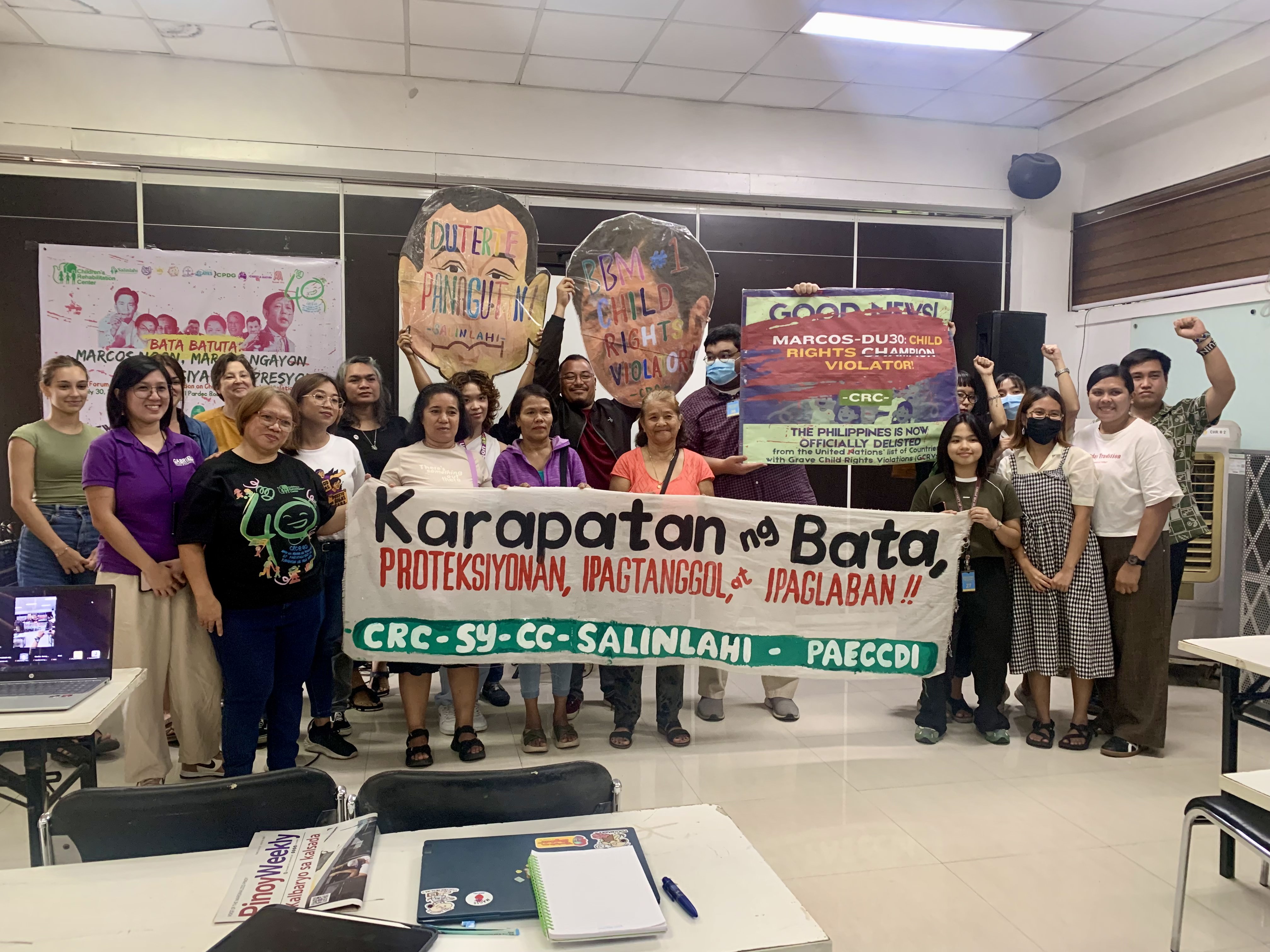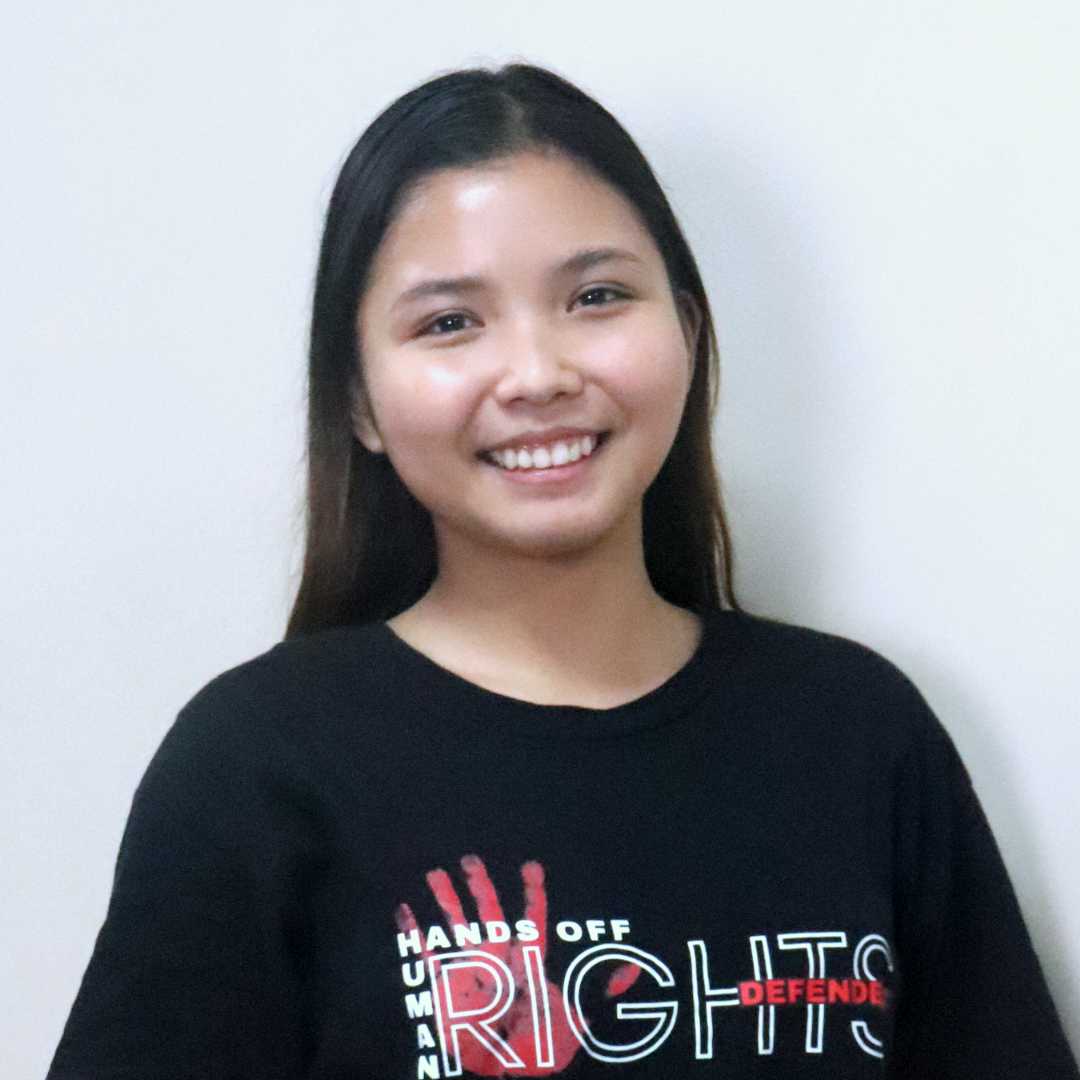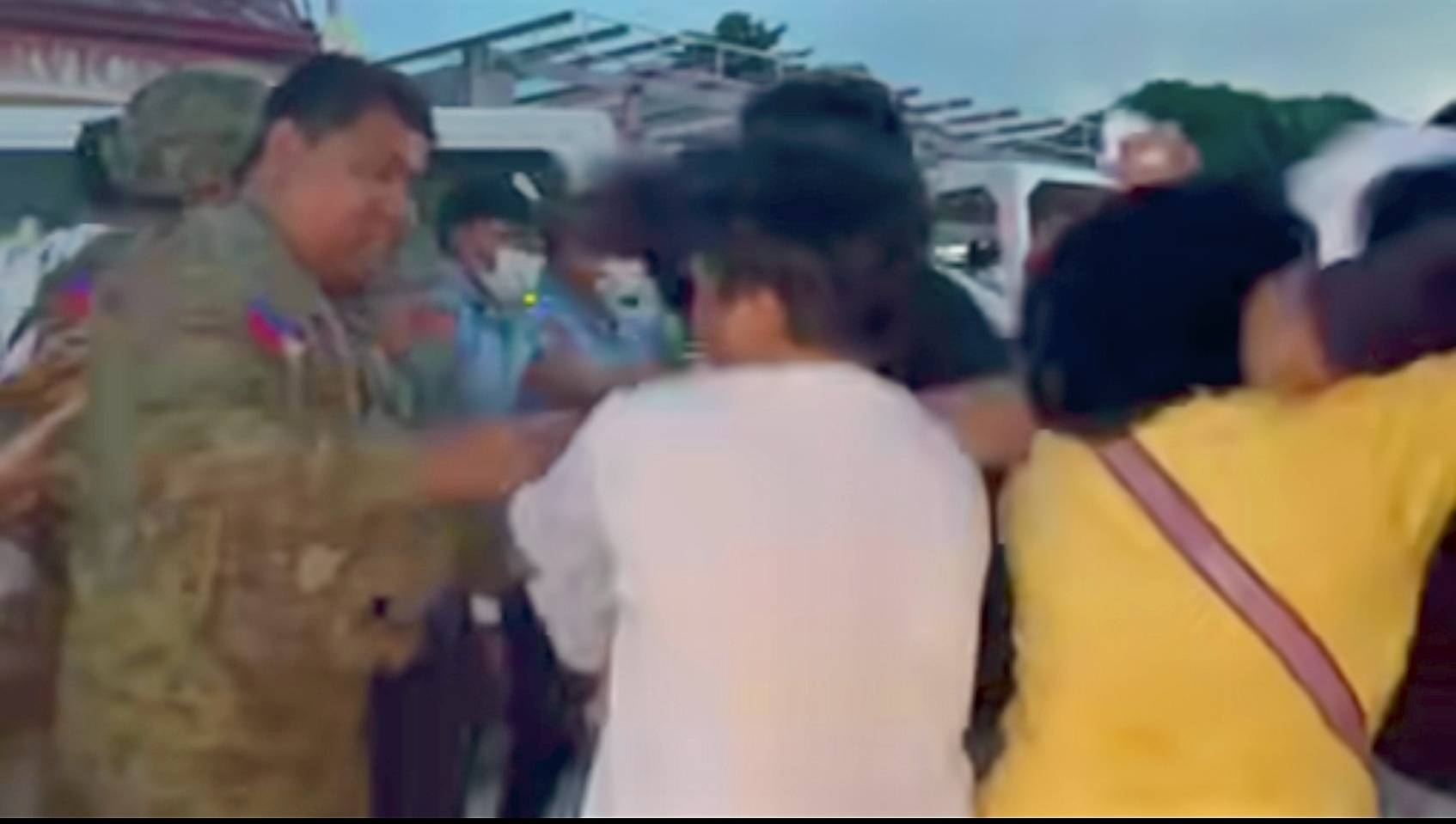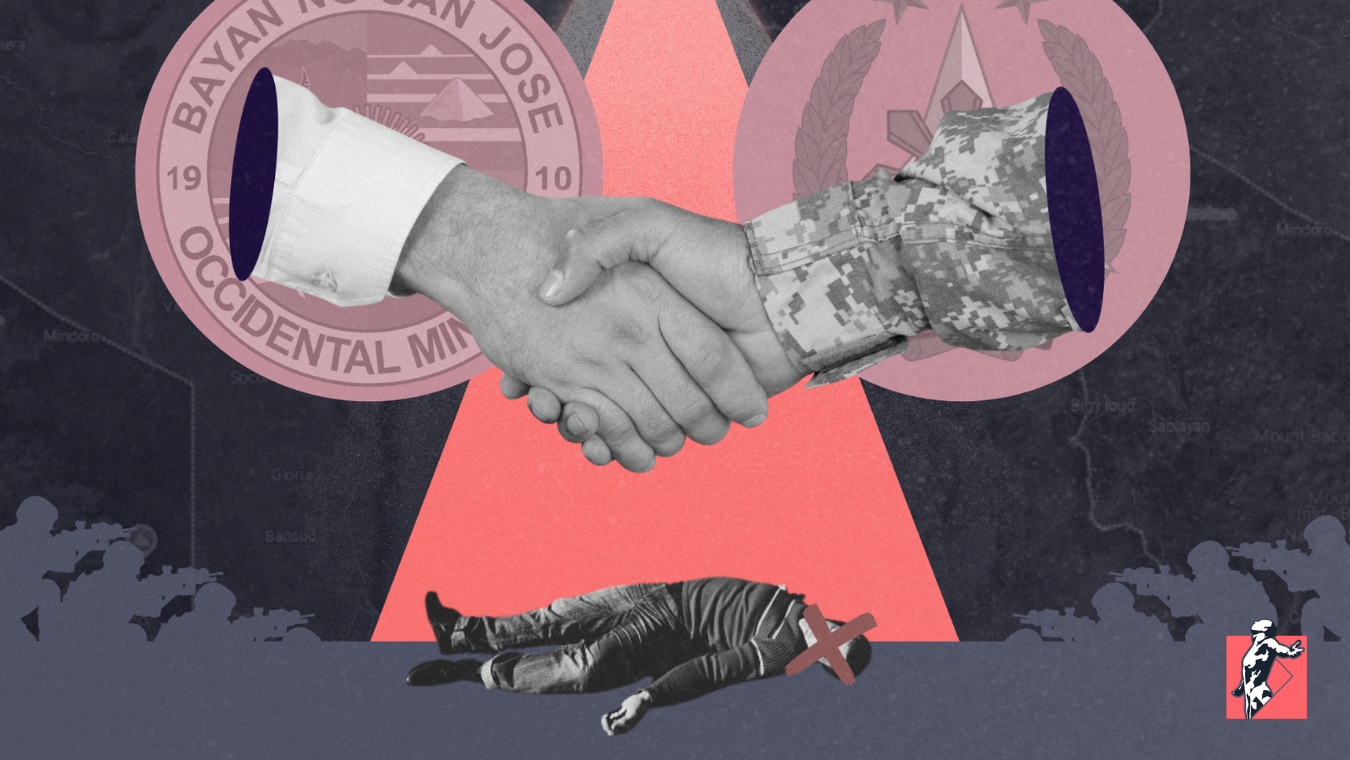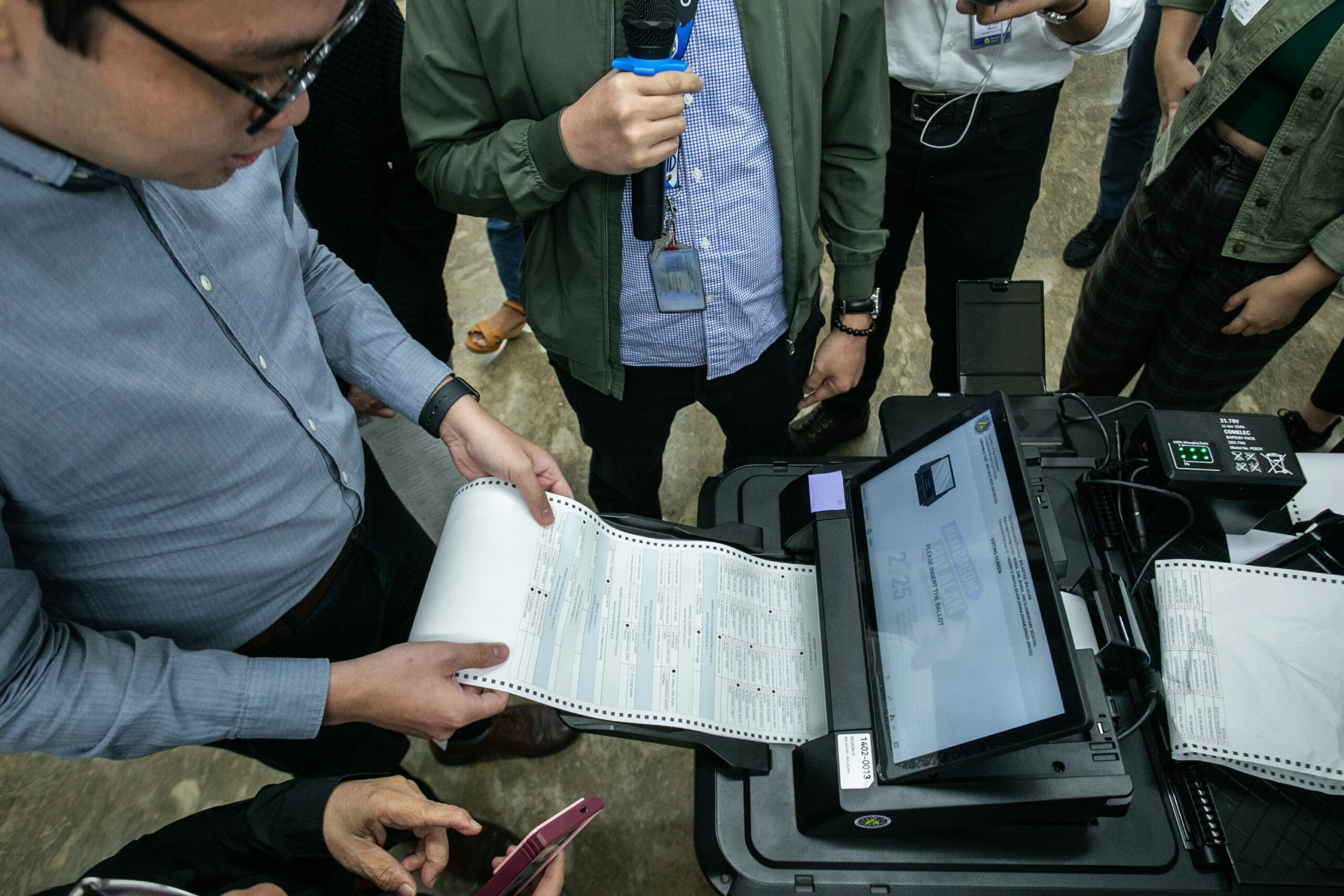After 22 years, the Philippines will be removed from the annexes of the next United Nations’ report on grave child rights violations related to armed conflict, as confirmed by the latest UN report on children and armed conflict.
The decision was finalized June 17 on the basis that the country has shown a decrease in the cases of grave violations and that the government has enforced preventive measures for the protection of children in cooperation with UN standards, according to the report.
The measures refer to the formation of the 4th National Plan of Action for Children, which includes the creation of standard protocols for government agencies that will be involved in the handling of grave violations and the addition of child protection in exploratory talks with the CPP-NPA-NDF, among others.
But for children’s rights advocates and groups such as the Children’s Rehabilitation Center, grave child rights violations remain rampant yet largely undocumented, as ineffective, unsafe, and inaccessible reporting mechanisms continue to conceal the reality of harassment, violence, and killings experienced by children, especially in highly militarized communities.
Safety of Children
As of latest reports, the groups that are listed as violators in the Philippines are non-state armed groups such as the New People’s Army, Bangsamoro Islamic Freedom Fighters, and Abu Sayyaf, primarily attributed to the recruitment and use of children in their operations.
Under the United Nations Security Council’s first resolution on children and armed conflict in 1999, there are six named grave child rights violations:
- Killing and maiming of children
- Recruitment or use of children as soldiers
- Sexual violence against children
- Abduction of children
- Attacks against schools or hospitals
- Denial of humanitarian access for children
Among the nine verified child victims of grave violations—five of which were boys and four were girls—in 2024, four involved the NPA’s recruitment and use of children in combat or support roles.
In the 2023 report, the Dawlah Islamiyah-Maute group is cited as one of the top grave violators, as Mindanao, where the Bangsamoro Islamic Freedom Fighters and Abu Sayyaf Group are primarily located, was found to be the region most affected by armed conflict.
But the Armed Forces of the Philippines is not listed despite having recurring violations, such as the recruitment and use of three other children, said UNICEF Child Protection Officer Carol Pajaron. The AFP also killed one of the two boy casualties and used a madrasa or an Islamic school during one of its operations against the Bangsamoro Islamic Freedom Fighters.
Underreported Violations
While nine cases are considered by the UN a big shift compared to the 58 grave violations against 43 children in 2023, the Children’s Rehabilitation Center and fellow child rights advocates assert that these numbers do not fully capture the actual situation.
The center pointed out that ongoing counterinsurgency programs, which particularly torment peasant, indigenous, and other rural communities, affect the respective children in these areas, too.
“Attacks on communities and attacks on human rights defenders, are attacks on their children,” said Olivia Bernardo, executive director of the center, in the forum they organized July 30.
They also argued that the military has not honored its supposed commitment to child and human rights. Rather, violations are underreported by families harassed by the AFP due to fear of retaliation.
Military presence in communities often comes with warrantless arrests of community members, redtagging, and militarization of schools, which force children to stop studying and starve when their working parents are arrested, said Ma. Selene Cadag, treatment and rehabilitation staff of the center, in the same forum.
The children, which the center cares for, are direct witnesses to the harassment and, sometimes, the killing of their parents. This induces long-term psychological trauma to the child as they suffer from grief, isolation, fear, and social withdrawal.
In 2024 alone, the AFP bombed communities along the areas of Sta. Maria, Ilocos Sur and Pilar, Abra, where at least 137 families were forcibly evacuated and farmers were prohibited from visiting their farms. These families are among the 46,921 victims of bombings under President Ferdinand Marcos Jr.’s administration since 2022.
“Meron tong biological, social, and psychological effects sa mga bata,” Cadag said. “Biologically, they experience psychosomatic symptoms at kahirapan sa pagtulog at pagkain. [Socially,] nandyan din yung pakiramdam na nag-iisa, and they engage in high-risk taking behavior as they model their traumatic projections.”
Curbed Monitoring
Prior to the country’s removal from the annex, UNICEF led the monitoring and validation of grave child rights violations in the country through the Country Task Force on Monitoring and Reporting. The task force is also among the human rights policy advisory group that releases yearly human rights reports in the country.
Now, the task force will have to be dissolved as they will be replaced by the Inter-agency Committee on Children in Situations of Armed Conflict, which is composed of the Council for the Welfare of Children, Philippine National Police, AFP, and the Commission on Human Rights, among others.
But the PNP and AFP’s membership in the new monitoring body bothers the Children’s Rehabilitation Center, as ”the government will be expected to report its own violations,” per Bernardo.
Though the government also promotes its MAKABATA Helpline 1383 initiative, formalized by Executive Order 79 as a means for reporting grave child rights violations, the center criticized its inaccessibility in some areas, as the hotline relies on a gadget, load, and signal reception in the area. Furthermore, there’s no guarantee on the safety of the complainant against retaliation.
Despite being replaced in the monitoring and validation work, Pajaron promised that UNICEF will stay committed to engaging in an action plan.
With the removal of the Philippines in the next UN report on grave child rights violations and the dissolution of the Country Task Force on Monitoring and Reporting, the Children’s Rehabilitation Center and its fellow advocates fear that the government’s supposed commitments are empty promises. The group is concerned with the unassured impartiality of monitoring, validation, and accountability against perpetrators affiliated with the state.
Advocates are hoping that with the change, more local chapters of the Commission on Human Rights will at least be established as soon as possible, to strengthen the commission’s network and capability of reporting grave child rights violations in different areas of the country.
“What we can do now is to build up our campaigns, advocacy, and funding for the child victims, their families, and their communities,” said the center. ●
